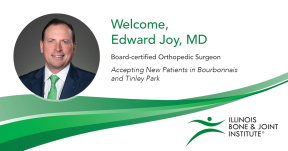Arthritis is a common form of joint disorder causing pain and stiffness. According to arthritis.org, more than 50 million adults have doctor-diagnosed arthritis.
While arthritis is a broad description covering common disorders of the joint, most people (even those that have been diagnosed with arthritis) are unaware of the following:
1. There Are Multiple Types of Arthritis
Arthritis is not a single disease as there are many different types of joint disorders with its own unique symptoms. There are over 100 variants of rheumatic diseases and arthritis. Some of the most well known types of arthritis are: rheumatoid arthritis, ankylosing spondylitis, systemic lupus, gout, and lyme. There are many other conditions that fall under arthritis, some with an autoimmune component including: juvenile rheumatoid arthritis (in children), scleroderma, fibromyalgia, and psoriatic arthritis.
2. There Can Be Systemic Effects with Some Forms of Arthritis
If you are suffering from arthritis, the most common symptoms are joint pain, stiffness and swelling. However, there are some autoimmune and inflammatory types of arthritis, for example, rheumatoid arthritis and lupus that cause inflammation not just in the tissue lining of the joints, but also in many other parts of the body tissue as well, which is referred to as systemic effects.
3. Arthritis Affects Children
Arthritis is often thought of as an age disease that commonly affects the elderly. However, people of all ages may be affected as seen in children
According the National Institute of Arthritis and Musculoskeletal and Skin Diseases there are currently 294,000 American children with arthritis. Alarmingly the CDC reports that 1 in every 250 children globally suffer from some type of arthritis or rheumatic condition.
4. Arthritis is More Prevalent for Older Woman
Another common overlooked fact about arthritis is the prevalence in older woman. The Centers for Disease Control and Prevention state, “Overall, 22.7% (52.5 million) of adults reported doctor-diagnosed arthritis, with significantly higher age-adjusted prevalence in women (23.9%) than in men (18.6%). Arthritis prevalence increased with age.”
5. Arthritis Can Lead to Other Lifestyle Diseases
Patients suffering from arthritis symptoms, such pain and stiffness, often do not get adequate exercise due to increased levels of pain. This not only can affect physical health, but mental as well as exercise has been proven to be a natural stress reliever. As a result, arthritis may lead to other medical conditions like diabetes, heart disease and obesity.
6. Arthritis Cannot Be Cured But It Can Be Well-Managed
While there is no definitive cure for arthritis, it can be managed it with treatment and lifestyle changes. Your physician will help design a pain management plan that works for you, but some typical lifestyle changes include: stop smoking, maintain a healthy weight, protect your joints when engaging in activities, exercise in moderation regularly, and be compliant with your treatment regimen, in order to manage the symptoms of arthritis.
7. Manage Your Pain
Arthritis is the leading cause of disability in the U.S., with over 19 million adults reporting limitation in their daily activities due to the condition, every year. According to the CDC, 1 out of 20 in working-age adults from 18-64 years, admitted to arthritis affecting their work. With arthritis it is important to be diagnosed early so that you can start treatment immediately as soon as you experience symptoms of arthritis.
If you are concerned about arthritis or any other orthopedic pain, contact IBJI today.
*This content is for information only and is not intended to replace the diagnosis, treatment, or medical advice from your treating healthcare professionals. The content does not provide medical advice, does not constitute the practice of medicine or other healthcare professional services, and does not create a doctor-patient relationship. You should not rely on this information as a substitute, nor does it replace professional medical advice, diagnosis, or treatment. If you have concerns or questions, seek the advice of your healthcare professionals. If you think you may have a medical emergency, call your doctor or 911 immediately. Do not rely on electronic communications or communicate through this website for immediate, urgent medical needs. This website is not designed to facilitate medical emergencies. The use of the information is at the reader’s own risk. The links are provided for information and convenience only. We cannot accept responsibility for the sites linked or the information found here. A link does not imply an endorsement of a site.




